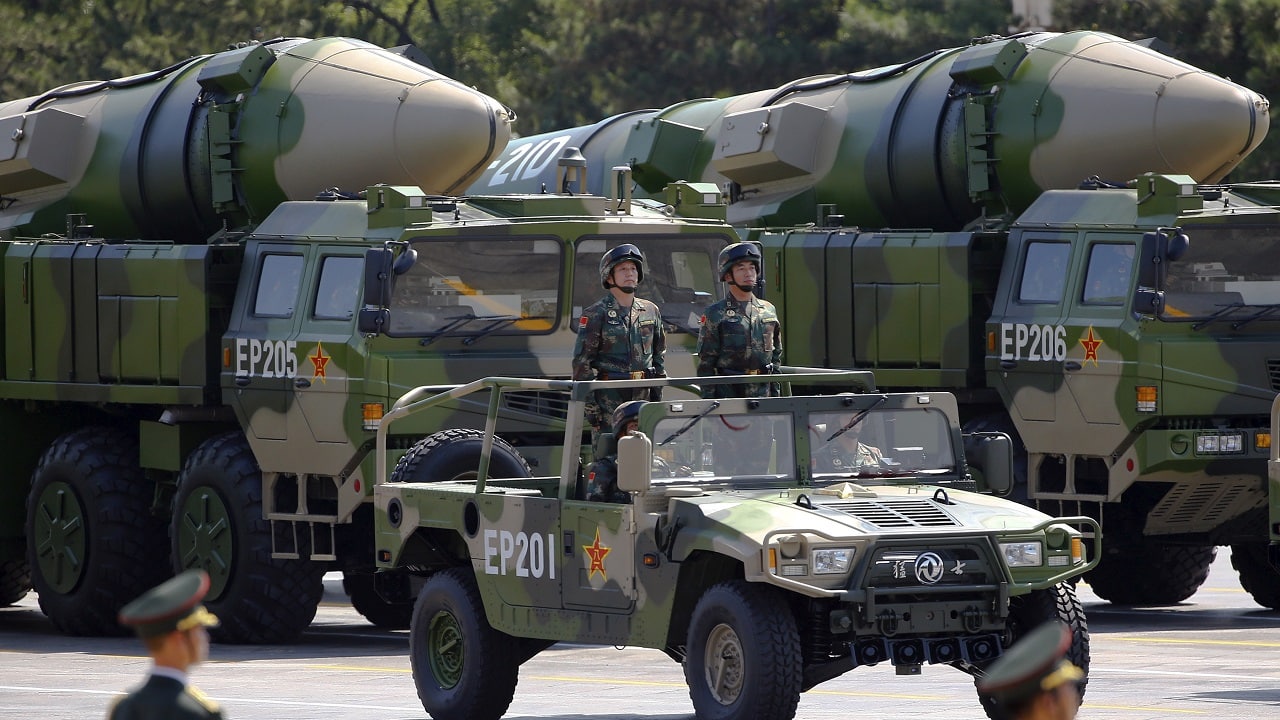Mongolia Has a Greater Claim Over Much of China than China has Over Taiwan: President Xi Jinping continues to voice the Chinese Communist Party’s mantra that Taiwan is part of China and must “return” to the mainland. Beijing’s strategy remains to base legitimacy of claims upon the repetition of fact rather than historical reality.
China’s Bold Territorial Claims
This is the case with its “Nine-Dash Line,” a maritime claim that the People’s Republic utilizes to justify its imperialism against the Philippines, Vietnam, Malaysia, and other countries. The claims first appeared on fraudulent 1947 map that dozens of authentic archival maps dating back hundreds of years contradict.
Xi’s claims against Taiwan are no more historically valid. Taiwan is no more part of “One China” than India, Indonesia or, for that matter, Iceland. Over the last 500 years, mainland Chinese have controlled Taiwan for a couple decades at most and even much of that control was more theoretical than real. Citing Qing Dynasty control is further ironic as Chinese consider the Qing Manchu rather than ethnic Chinese. Then there is Mao Zedong himself.
In a 1936 interview with his American hagiographer Edgar Snow, Mao acknowledged Taiwan was not Chinese and deserved independence. “It is the immediate task of China to regain all our lost territories,” he said. “When we have re-established the independence of the lost territories of China, and if the Koreans wish to break away from the chains of Japanese imperialism, we will extend them our enthusiastic help in their struggle for independence. The same thing applies to Formosa [Taiwan].”
Even if China’s partisans wanted to ignore all this, they cannot erase that mainland China has not governed Taiwan since before Japan seized the island in 1895. More than 100 countries gained independence since authorities in Beijing last controlled Taiwan.
The Mongolia Claim
If China persists in such fanciful claims to justify aggression toward Taiwan, what could the precedent mean for China itself?
There is no doubt that China is an imperialist power. It occupies the entirety of Tibet and a large chunk of Kashmir.
Its actions toward the Uyghurs represent the largest industrial-scale genocide since the Holocaust, even if taken in slower motion. While Mongolia maintains cordial relations with both Russia and China out of necessity—it is sandwiched between both without any other land outlet—the reality is Mongolia should rightfully be twice the size of its current borders.
The Qing dynasty divided Mongolia into two portions, Inner Mongolia and Outer Mongolia. The Manchus encouraged Chinese encroachment and colonization of Mongolian lands, beginning with Inner Mongolia. After the Qing signaled their intention to repeat the process in Outer Mongolia, the Mongolians rebelled to protect their people, culture, and language.
Russia supported Outer Mongolia’s demand for independence in part because it wanted a buffer state between it and China.
Inner Mongolia was not so lucky due to the high presence of Chinese colonialists already sinking roots into the territory. Still, the fact remains and contemporaneous maps show: The indigenous and legitimate population of Inner Mongolia still controlled their territory decades after the Qing dynasty lost Taiwan.
Therefore, if Beijing insists that the 19th century possession of Taiwan gives it rights to possess the island, should it not reinforce that logic by returning Inner Mongolia to its rightful owners?
Beijing should remain part of China, but the Trump administration should be clear about the price of any U.S. affirmation of the “One China” policy the late National Security Advisor Henry Kissinger crafted: A return to the nineteenth century as the baseline for legitimacy throughout the entire region.
Put another way, it is time to support Mongolia’s rightful need for an outlet to the sea. Inner Mongolia historically approached Liaodong Bay near the border of what now is North Korea. Historic port towns such as Ningyuan Wei are historically Mongol.
Just over four years ago, Secretary of State Antony Blinken and National Security Advisor Jake Sullivan met their counterparts for a summit in Anchorage, Alaska. They exuded weakness and confusion as the Chinese theatrically dressed them down. When Secretary of State Marco Rubio and National Security Advisor Michael Waltz meet their Chinese counterparts, or when Trump meets Xi, they should take the offensive and not allow Chinese lies and propaganda to define the debate.
What the Future Could Look Like
Both Russia post-Vladimir Putin and China following its demographic collapse could easily fracture. The United States should be on the right side of history and stand with its friends. It should be the official policy of the United States to support the restoration of Mongolia’s rightful borders, the forcible return of Chinese settlers to China, and Mongolia’s right to have an outlet to the sea.
Just as President Donald Trump does not believe false conventional wisdom should force him to accept inefficient bureaucracies, so too should he not approach America’s greatest competitor by surrendering to its own false narratives, even if his predecessors did.
Put another way, perhaps the best way to Make America Great Again in the region is to also Make Mongolia Great Again.
About the Author: Dr. Michael Rubin
Michael Rubin is a senior fellow at the American Enterprise Institute and director of policy analysis at the Middle East Forum. The views expressed are his own.

